![STAR TREK TOS S3 MB - MOVIE [DVD] [1969]](/pictures/1154584.jpg) STAR TREK TOS S3 MB - MOVIE | DVD | (02/10/2014)
from £16.06
| Saving you £N/A (N/A%)
| RRP
STAR TREK TOS S3 MB - MOVIE | DVD | (02/10/2014)
from £16.06
| Saving you £N/A (N/A%)
| RRP ![Star Trek 2: The Wrath of Khan - Directors Edition (Two Disc Set) [1982]](/pictures/1029238.jpg) Star Trek 2: The Wrath of Khan - Directors Edition (Two Disc Set) | DVD | (18/11/2002)
from £N/A
| Saving you £N/A (N/A%)
| RRP
Star Trek 2: The Wrath of Khan - Directors Edition (Two Disc Set) | DVD | (18/11/2002)
from £N/A
| Saving you £N/A (N/A%)
| RRP Director Nicholas Meyer's concept for Star Trek II: The Wrath of Khan was to make it "Captain Horatio Hornblower in space". Equipped with a budget a fraction the size of that accorded the first movie, and bolstered by James Horner's swashbuckling score, Meyer accordingly delivered the most exciting of all the Trek big-screen outings, referencing both CS Forester's Hornblower and classic submarine dramas, as well as adding some literary flourishes and ground-breaking CGI work for good measure (the Genesis device sequence is a computer-animation landmark). Resurrected from the "Space Seed" episode of the TV series, Ricardo Montalban's Khan is the hammiest, most passionately alive Trek villain, infused with Captain Ahab's self-destructive single-mindedness and quoting Moby Dick and Shakespeare in his furious pursuit of Kirk. Given permission to be melodramatic, William Shatner has never been stronger, or made Kirk seem more vulnerable. And even after seeing all the later movies, no self-respecting Trekker can sit through Spock's ultimate illogical sacrifice with a dry eye. Unlike the major revisions made to The Motion Picture, this new Director's Edition of Wrath of Khan is only a very slightly extended version of the original, with some fairly minor additions--most notably scenes that establish Midshipman Peter Preston as Scotty's nephew, thereby explaining Scotty's grief at the young man's death. Some other scenes--such as Kirk and Spock discussing the Genesis Device--have also been expanded. On the DVD: Star Trek II: The Wrath of Khan is now presented in a lovely 2.35:1 anamorphic widescreen print with Dolby 5.1 sound. The first disc has an audio commentary from Nicholas Meyer, plus another fascinating all-you-ever-needed-to-know text commentary from Trek expert Michael Okuda (he did the same for The Motion Picture's DVD release). The second disc has a series of informative documentaries, the most substantial being a lengthy retrospective "Captain's Log", featuring contributions from Producer Harve Bennett, Meyer, Shatner, Nimoy and Montalban. Other featurettes focus on the production design ("Designing Khan"), "Visual Effects", and the writers of Star Trek novel spin-offs about Khan and the Kobayashi Maru ("The Star Trek Universe"). It's a shame that James Horner's major contribution goes unnoticed though. To round things off there are some promotional interviews from 1982, storyboards and the original trailer. --Mark Walker
![Convoy [1978]](/pictures/1004119.jpg) Convoy | DVD | (05/03/2001)
from £8.95
| Saving you £5.04 (56.31%)
| RRP
Convoy | DVD | (05/03/2001)
from £8.95
| Saving you £5.04 (56.31%)
| RRP Even in the tiny genre of films based on songs, Convoy is a strange effort--CW McCall's 1977 CB radio-themed novelty hit was just a collection of trucker slang, but here it is gussied up by Sam Peckinpah (no less) as a big rig reprise of The Wild Bunch with Kris Kristofferson as trucker outlaw hero Rubber Duck and a wonderfully oversized Ernest Borgnine as "Dirty Lyle", the "bear" who hates "breakers" and finally decides to call in the National Guard to help him enforce traffic laws with machine guns. The plot is almost invisible, as Rubber Duck and his breaker buddies just up and decide to trundle their lorries across the Western States in a dash for Mexico (no one ever mentions delivering their loads to intended destinations) and becoming such a folk hero that the creepy governor (Seymour Cassell) tries to cash in. Kristofferson and Borgnine were old Peckinpah hands, as is heroine Ali MacGraw (a characterless photographer) and sidekick Burt Young ("Love Machine" aka "Pigpen"), and there's a lot of business about cops and outlaws who mirror each other, but the main attraction is the visuals--huge trucks rolling across desert roads in clouds of dust, police cars crashing through billboards, trucks demolishing a corrupt small town. There are traces of road-movie melancholia in the depressed cafes, jails and laybys where free spirits are broken, but it's still mostly a cash-in on Smokey and the Bandit with a few rags of poetry tossed into the mix. On the DVD: A letterboxed print, enhanced for 16x9, looks pretty good, with enough widescreen to get all the trucks into the image. But otherwise this is the sort of release that passes off "chapter search" and "multilingual menus" as extras, although there are basic filmographies for the principal and a poster/photo album. The mono soundtrack comes in English, French, Spanish and Italian. --Kim Newman
![Star Trek 6: The Undiscovered Country -- Special Edition (2 discs) [1991]](/pictures/1029114.jpg) Star Trek 6: The Undiscovered Country -- Special Edition (2 discs) | DVD | (01/03/2004)
from £8.14
| Saving you £16.85 (207.00%)
| RRP
Star Trek 6: The Undiscovered Country -- Special Edition (2 discs) | DVD | (01/03/2004)
from £8.14
| Saving you £16.85 (207.00%)
| RRP With the return of director Nicholas Meyer, Star Trek VI: The Undiscovered Country restored the movie series to its classic blend of space opera, intelligent plotting and engaging interaction of stalwart heroes and menacing villains. Borrowing its subtitle (and several lines of dialogue) from Shakespeare, the movie finds Admiral Kirk (William Shatner) and his fellow Enterprise crew members on a diplomatic mission to negotiate peace with the revered Klingon Chancellor Gorkon (David Warner). When the high-ranking Klingon and several officers are ruthlessly murdered, blame is placed on Kirk and crew. The subsequent investigation, which sees Spock taking on the mantle of Sherlock Holmes (and even quoting some of the great detective's lines), uncovers an assassination plot masterminded by the nefarious Klingon General Chang (Christopher Plummer) in an effort to disrupt a historic peace summit. As this political plot unfolds Star Trek VI takes on a sharp-edged tone with Kirk and Spock confronting their opposing views of diplomacy and testing their bonds of loyalty when a Vulcan officer (Kim Cattrall) is revealed to be a traitor. With a dramatic depth befitting what was to be the final movie mission of the original Enterprise crew, this film took the veteran cast out in respectably high style, with the torch being passed to the crew of Star Trek: The Next Generation in the following movie, Star Trek: Generations. --Jeff Shannon On the DVD: Star Trek VI: The Undiscovered Country is a two-disc set with the main feature presented in anamorphic widescreen at the fascinating (as Mr Spock would say) ratio of 2.00:1. Sound is strong Dolby Digital 5.1. Director Nicholas Meyer and screenwriter Denny Martin Flinn provide an audio commentary and Trek-trivia gurus Michael and Denise Okuda give another of their fact-packed text commentaries. The second disc has several lengthy and interesting documentaries: The Perils of Peacemaking delves into the many deliberate parallels with the Cold War; Stories from Star Trek VI consists of eight separate chapters about the making of the film (where it's revealed that "Gene Roddenberry hated the script", and that "The studio was not ready to relinquish the original actors possibly because they were still ambulatory"!); The Star Trek Universe has various nuggets of information, including the creation and evolution of the Klingons. Finally, in Farewell there are interviews with the principal cast from the set, plus a tribute to DeForest Kelley. Nicholas Meyer, Leonard Nimoy and William Shatner all provide up-to-date contributions throughout. --Mark Walker
![The Killer Elite [1975]](/pictures/1002406.jpg) The Killer Elite | DVD | (21/07/2003)
from £N/A
| Saving you £N/A (N/A%)
| RRP
The Killer Elite | DVD | (21/07/2003)
from £N/A
| Saving you £N/A (N/A%)
| RRP Best friends Mike Locken and George Hansen are the 'Killer Elite' undertaking jobs that are too dangerous even for the CIA. But when one of the duo is betrayed by the other things get tricky...
![Star Trek 5 : The Final Frontier - Special Edition (2 discs) [1989]](/pictures/1029128.jpg) Star Trek 5 : The Final Frontier - Special Edition (2 discs) | DVD | (22/12/2003)
from £4.99
| Saving you £20.00 (400.80%)
| RRP
Star Trek 5 : The Final Frontier - Special Edition (2 discs) | DVD | (22/12/2003)
from £4.99
| Saving you £20.00 (400.80%)
| RRP Almost universally derided on its first release as the worst of the Star Trek movies to date, The Final Frontier might just have been the victim of bad press. Following in the wake of the massively successful fourth instalment The Voyage Home didn't help matters (notoriously, even-numbered entries are better), nor did having novice director and shameless egomaniac William Shatner at the helm. But if the story, conceived and cowritten by Shatner, teeters dangerously on the verge of being corny, it redeems itself with enough thought-provoking scenes in the best tradition of the series, and a surprisingly original finale. Granted there are a few too many yawning plot holes along the way, and the general tone is over-earnest (despite some painfully slapstick comedy moments), but the interaction of the central trio (Kirk, Spock and McCoy) is often funny and genuinely insightful; while Laurence Luckinbill is a charismatic adversary as the renegade Vulcan Sybok. The rest of the cast scarcely get a look in, and the special effects betray serious budgetary restrictions, but with a standout score from Jerry Goldsmith and a meaty philosophical premise to play around with, Star Trek V looks a lot more substantial in retrospect. Certainly it's no worse than either Generations or Insurrection, the next "odd-numbered" entries in the series. --Mark Walker
 Star Trek 4: The Voyage Home (Special Edition) | DVD | (02/06/2003)
from £9.98
| Saving you £15.01 (150.40%)
| RRP
Star Trek 4: The Voyage Home (Special Edition) | DVD | (02/06/2003)
from £9.98
| Saving you £15.01 (150.40%)
| RRP The most popular movie in the "classic Trek" series of feature films, Star Trek IV was a box-office smash that satisfied mainstream audiences and hard-core fans alike. The Voyage Home returns to one of the favourite themes of the original TV series--time travel--to bring Kirk, Spock, McCoy, Scotty, Sulu, Uhura and Chekov from the 23rd century to present-day (i.e., mid-1980s) San Francisco. In their own time, the Starfleet heroes encounter an alien probe emitting a mysterious message--a message delivered in the song of the now-extinct Earth species of humpback whales. Failure to respond to the probe will result in Earth's destruction, so Kirk and company time-travel to 20th-century Earth--in their captured Klingon starship--to transport a humpback whale to the future in an effort to communicate peacefully with the alien probe. The plot sounds somewhat absurd in description, but as executed by returning director Leonard Nimoy, this turned out to be a crowd-pleasing adventure, filled with a great deal of humour derived from the clash of future heroes and contemporary urban realities, and much lively interaction among the favourite Trek characters. Catherine Hicks plays the 20th-century whale expert who is finally convinced of Kirk's and Spock's benevolent intentions. --Jeff Shannon
![Star Trek 3 - The Search For Spock [1984]](/pictures/1029329.jpg) Star Trek 3 - The Search For Spock | DVD | (01/10/2001)
from £N/A
| Saving you £N/A (N/A%)
| RRP
Star Trek 3 - The Search For Spock | DVD | (01/10/2001)
from £N/A
| Saving you £N/A (N/A%)
| RRP The name says it all--Star Trek III: The Search for Spock--so you didn't think Mr. Spock was really dead, did you? When Spock's casket landed on the surface of the Genesis planet at the end of Star Trek II, we had already been told that Genesis had the power to bring "life from lifelessness". So it's no surprise that this energetic but somewhat hokey sequel gives Spock a new lease of life, beginning with his rebirth and rapid growth as the Genesis planet literally shakes itself apart in a series of tumultuous geological spasms. As Kirk is getting to know his estranged son (Merritt Butrick), he must also do battle with the fiendish Klingon Kruge (Christopher Lloyd), who is determined to seize the power of Genesis from the Federation. Meanwhile, the regenerated Spock returns to his home planet, and Star Trek III gains considerable interest by exploring the ceremonial (and, of course, highly logical) traditions of Vulcan society. The movie's a minor disappointment compared to Star Trek II, but it's a--well, logical--sequel that successfully restores Spock (and first-time film director Leonard Nimoy) to the phenomenal Trek franchise ... as if he were ever really gone. With Kirk's wilful destruction of the USS Enterprise and Robin Curtis replacing the departing Kirstie Alley as Vulcan Lt Saavik, this was clearly a transitional film in the series, clearing the way for the highly popular Star Trek IV. --Jeff Shannon, Amazon.com
![Star Trek 3: The Search for Spock -- Two Disc Special Edition [1984]](/pictures/1029229.jpg) Star Trek 3: The Search for Spock -- Two Disc Special Edition | DVD | (13/01/2003)
from £N/A
| Saving you £N/A (N/A%)
| RRP
Star Trek 3: The Search for Spock -- Two Disc Special Edition | DVD | (13/01/2003)
from £N/A
| Saving you £N/A (N/A%)
| RRP With hindsight, Star Trek III: The Search for Spock is the satisfactory middle instalment of a well-rounded trilogy that began with The Wrath of Kahn and ended with The Voyage Home (after which this crew really should have retired gracefully). But on its first release, few fans knew what to expect and initial impressions were disappointing. The biggest talking points were that the film was Leonard Nimoy's directorial debut and that his name wasn't in the opening credits. Naturally, the biggest question was just how would the loss of Spock affect the franchise? That question was neatly dodged and what audiences got instead was a tale of team-spiritedness, sacrifice and rebellion that ended on a question mark. In other words it was a fun ride without many answers. The centrepiece of the movie has to be stealing The Enterprise, a beautifully conceived sequence that remains at the heart of classic Trek's filmic storyline: sacrificing all for the sake of friendship, Kirk and co. set out to rescue their lost companion; this single action defines everything the characters had ever meant to each other, and has an effect on everything that followed. And if the loss of Spock had left audiences eager for more, that was as nothing compared to the loss of The Enterprise. On the DVD: Star Trek III on disc does not come in a new transfer as the previous two special edition DVDs, and you won't find any deleted or new scenes either. The extras package is fascinating, nonetheless, especially with the contributions from Nimoy. His fond reminiscences in the commentary track are priceless, with good support from writer-producer Harve Bennett, director of photography Charles Correll, and Robin Curtis (Saavik). The text commentary from the Okudas isn't as involving as the others, sadly, but this is made up for by the trivia dished out in documentaries covering: model-making, costume design, the science of Terraforming, and how to speak Klingon. The best inclusion is "Captain's Log" featuring interviews with an enthusiastic Nimoy, a sarcastic Shatner, an appreciative Curtis and the rarely seen Christopher Lloyd. --Paul Tonks
 Star Trek: The Original Series - Season 2 | DVD | (01/11/2004)
from £35.90
| Saving you £34.09 (94.96%)
| RRP
Star Trek: The Original Series - Season 2 | DVD | (01/11/2004)
from £35.90
| Saving you £34.09 (94.96%)
| RRP Episodes comprise: 1. Amok Time 2. Who Mourns For Adonais? 3. The Changeling 4. Mirror Mirror 5. The Apple 6. The Doomsday Machine 7. Catspaw 8. I Mudd 9. Metamorphosis 10. Journey To Babel 11. Friday's Child 12. The Deadly Years 13. Obsession 14. Wolf In The Fold 15. The Trouble With Tribbles 16. The Gamesters Of Triskelion 17. A Piece Of The Action 18. The Immunity Syndrome 19. A Private Little War 20. Return To Tomorrow 21. Patterns Of Force 22. By Any Other Name 23. The O
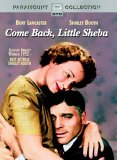 Come Back Little Sheba | DVD | (08/11/2004)
from £N/A
| Saving you £N/A (N/A%)
| RRP
Come Back Little Sheba | DVD | (08/11/2004)
from £N/A
| Saving you £N/A (N/A%)
| RRP Shirley Booth won the 1953 Best Actress Oscar for her role as Lola an ageing woman dealing with loss: the loss of ""herself"" and her dreams twenty years before and the recent loss of her dog Sheba - in effect her replacement for a child. Burt Lancaster plays Doc Lola's husband; an ex-alcoholic dwelling on his belief that he was forced into marriage due to Lola's pregnancy which was subsequently lost. When a young college student named Marie rents a room in their house Doc f
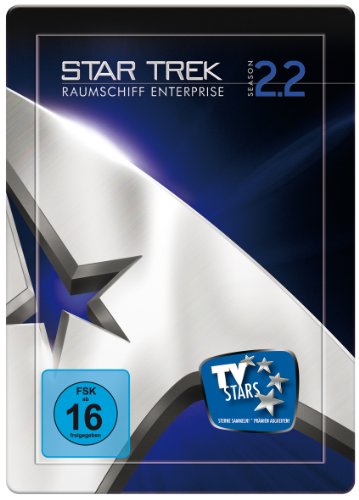 Star Trek:Raumschiff Enterprise 2.2 | DVD | (07/05/2009)
from £N/A
| Saving you £N/A (N/A%)
| RRP
Star Trek:Raumschiff Enterprise 2.2 | DVD | (07/05/2009)
from £N/A
| Saving you £N/A (N/A%)
| RRP 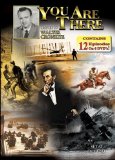 You Are There Volume Ii, 6 Dvd Box Set | DVD | (19/01/2009)
from £N/A
| Saving you £N/A (N/A%)
| RRP
You Are There Volume Ii, 6 Dvd Box Set | DVD | (19/01/2009)
from £N/A
| Saving you £N/A (N/A%)
| RRP 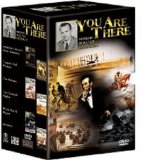 You Are There Vol.1 | DVD | (17/11/2008)
from £N/A
| Saving you £N/A (N/A%)
| RRP
You Are There Vol.1 | DVD | (17/11/2008)
from £N/A
| Saving you £N/A (N/A%)
| RRP 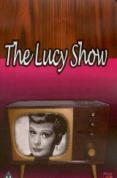 The Lucy Show - Season 5 Vol. 7 | DVD | (25/09/2006)
from £21.58
| Saving you £-13.59 (N/A%)
| RRP
The Lucy Show - Season 5 Vol. 7 | DVD | (25/09/2006)
from £21.58
| Saving you £-13.59 (N/A%)
| RRP By season 5 Lucy had moved to LA to become Mr Mooney's secretary at the bank and what follows is... 1. Lucy & Carol Go To Palm Springs 2. Lucy Meets The Law 3. Lucy Meets Jack Benny

Please wait. Loading...
This site uses cookies.
More details in our privacy policy